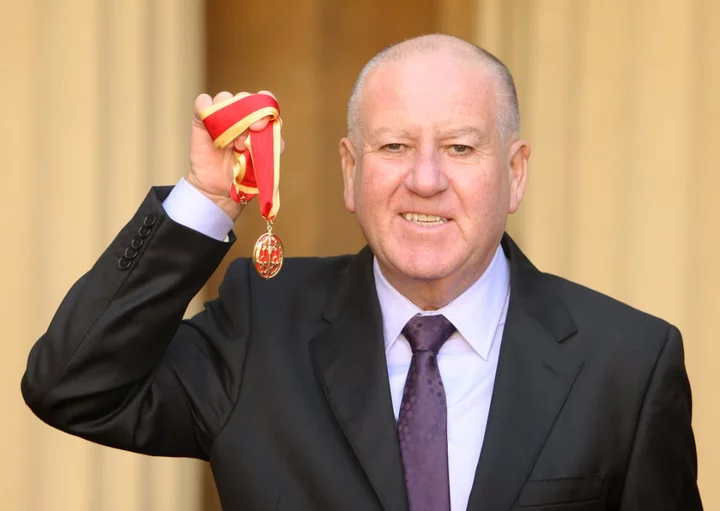
Former Sunderland chairman Sir Bob Murray on Newcastle, sportswashing and football’s forgotten roots
There were many moments that Sir Bob Murray could point to as illustrating how much football has changed, but one stands out for what he feels was a lack of basic decency. “My wife used to go to the boardroom at Chelsea, and they would thoroughly search her handbag,” he says. “She’s the woman married to the chairman of Sunderland.” The reason for that was out of the rigorous security concerns for Roman Abramovich, an ownership that Murray declares himself “personally diametrically against”. The 77-year-old even argues in his new book, I’d Do It All Again, that the entire issue of modern sportswashing “might have started with Abramovich picking up 20 trophies”. The deeper point is how some of football’s more dignified traditions, such as decency to rival clubs, were cast aside because of far loftier geopolitical concerns. Abramovich was a billionaire with a huge security detail, so that superseded the rest of the game. There is an obvious contrast with a great football figure that has been so celebrated this week, as Murray recounts in his book. The former accountant had taken his 10-year-old son James to see Sunderland’s match at Old Trafford, where Sir Bobby Charlton arranged for him to have his photo taken with the Champions League trophy. “When we played them at the Stadium of Light in the return fixture six months later, Sir Bobby had remembered the photo and handed James the picture. I was very touched by that; he’d showed great kindness and thought. Sir Bobby and his wife, Norma, always treated Sue and me like royalty at Old Trafford. In return, I always made sure I gave him some ham and pease pudding and stottie cake to take home whenever he came to our home games.” While so many of Murray’s stories raise a smile in the same way, it is very quickly apparent on talking to him about the book that this is no mere folksy look at what football used to be. It is about what the game is supposed to be, and what it represents. Drawing on his experience from 20 years as chairman of Sunderland, and having taken them up to the Premier League, Murray feels it is necessary to address the most complicated of themes. “Sportswashing” and the game’s many financial issues come up a lot, as he believes all of this is so damagingly moving the sport away from the community core it is supposed to be about. That ethos is visible in Sunderland’s Stadium of Light itself – with the financially sustainable way it was built seeing Murray brought into the St George’s Park and Wembley projects by the FA – as well as his aims for the book. He has insisted that 100 per cent of the cover prices goes to the Foundation of Light, the club-associated charity he set up “to use the power of football to invest in the communities we serve and to improve the education, health, wellbeing and happiness of people, no matter who they are”. It can be purchased at www.sirbobmurraybook.com. A core of the book of course covers Sunderland’s fortunes, from Roy Keane and the Niall Quinn-led takeover by Drumaville to Peter Reid’s transfers and tribulations, as well as the simple joy of having Kevin Phillips repeatedly lash the ball in after a Quinn knock-down. “It's the pace that things change,” Murray laments. “I think people don't realise it. This league is only 30 years old, it's in its infancy and yet... in 2000 I had the Golden Boot of Europe in Kevin Phillips. That was a wonderful thing to have, a lad that wanted to stay at Sunderland, that was 23 years ago.” It feels impossible now, because of how football’s economic infrastructure has been allowed to change. “It's just accelerating, we're just at the beginning of this journey... it's not going to get any better. We don't have any political leadership on it.” There is naturally a lot of discussion about Sunderland’s greatest rivals. While Murray is highly critical of the Public Investment Fund ownership of Newcastle United, and what it all represents, he believes the path to that point is instructive. He points to a period where both clubs reached agreements with broadcasters. “Where we’d created new shares, Newcastle United did a media deal of their own by selling existing shares to rivals NTL. The Newcastle directors received a lot more money – around £15m for themselves. The difference was it went straight into their pockets, while we took a share dilution so that ours could go straight into building and funding the Academy of Light. (We created new shares, so that the company – the club – got the money; Newcastle sold existing shares so that the directors got the money; then four years later the club bought some more Hall family shares, bringing the Hall income from Newcastle United to £20m. Add in salary packages and dividends paid to all shareholders and you’re looking at £36m to the Halls and £8m to Freddy Shepherd. And this was all before the sale to [Mike] Ashley.) “The receipts from the public flotation of Sunderland AFC all went to pay for the Stadium of Light and the Academy of Light. The receipts from the public flotation of Newcastle United helped pay back the Hall family loans. Sky had paid vast premiums to what the shares were really worth – but all the money went on the Academy of Light, and we had no debt. What do I think? I think we put the club first. Hall and Shepherd’s legacy to Newcastle was to get the highest price. That’s why they had 10 years of Mike Ashley. Now they’re owned by a Saudi. That’s your legacy…” While some would no doubt accuse Murray of jealousy or all the usual claims, that would be to completely misunderstand his perspective. This isn’t just about competing at any cost. It’s about creating something sustainable for the community. “It’s the Newcastle supporters I feel really sad for, they’ve got great tradition and pedigree, great supporters, very passionate, love their club, I'm concerned about them really. That’s what I’m concerned about. I don’t like them on a Saturday 3 o’clock, but after that I've got no problem with them.” He is highly critical of the Premier League’s leadership. “Who knows where it’s going to end? Probably with more clubs losing their soul.” Murray elaborates on this more in a chat about the book. “We've got a fantastic club, lots of youngsters, ladies, great mix, generations, really proper football club and we're very fortunate to have the owner we've got, but I didn't do the book because I'd been in the game so long again, and I did St George's Park and Wembley, I thought I should voice my concerns, that's to the advantage you spend a bit of time and effort on sportswashing, because it's quite new in the north east. That's where I am, I put my head above the parapet really, I didn't write the book to do sportswashing to be truthful. It's the issue isn't it.” Murray hones in on what this is in the book. “Sportswashing presents huge concern for the future. It’s money through the back door that hopefully will be investigated properly. And it goes back to that old chestnut of the supporter not being able to influence the thing he or she loves. In fact, it’s even worse: supporters are now turning their heads and not looking where the cash comes from as long as they are winning trophies or qualifying for Europe – that’s the ultimate triumph of sportswashing.” Speaking now, he brings much of this down to a core driving motivation. “There’s a lot of self interest because we have to win games. But football should be for the good of society. That's what we're all about really isn't it. “It reflects on them, because it's the power of the brand. We can get people to live better lives due to the crest. “That’s what the game's about.” Sir Bob Murray’s book can be bought at www.sirbobmurraybook.com, with 100% of the cover price going to the Foundation of Light Read More Eddie Howe’s tactical move exposes Newcastle weakness in Dortmund ‘lesson’ Newcastle given reality check as summer decision returns to haunt them One of those nights – Eddie Howe bemoans fine margins after Newcastle defeat Eddie Howe’s tactical move exposes Newcastle weakness in Dortmund ‘lesson’ Newcastle given reality check as summer decision returns to haunt them One of those nights – Eddie Howe bemoans fine margins after Newcastle defeat
2023-10-26 15:25

12 ways to weave some woodland wonder into your home
From woodland walks to winter terraces, the shorter days and longer evenings make you want to come home to a warm winter glow, earthy tones and forest green furnishings. Along with cosy textiles and ambient candlelight, the starting point is often a themed tablescape before thoughts turn to an inviting sofa with statement scatter cushions to sink into. Here’s how to embrace the natural world with forest green homewares and rustic accents… 1. Burleigh Tableware: Green Asiatic Pheasants Collection, Green Asiatic Pheasants 17.5cm Plate, £22; Green Regal Peacock Collection, Green Regal Peacock Mini Tankard Jug, (160ml), £36; rest of items from a selection, Burleigh. A flight of fancy brings the outdoors in with green pheasants and peacocks teamed with natural linens, seasonal décor and crystal stemware as clear as a calm stream. 2. Woodland Creatures Oven Gloves, £30, Cherith Harrison. With hearty casseroles and comfort food at the top of winter warmer menus, a practical pair of oven gloves takes on a whole new light with woodland wildlife enriching mealtimes. 3. Green Acorn Lidded Mug, £15, National Trust. Sweater weather is all about cupping your hands round a warming mug of cocoa, with a cute lid to keep it piping hot. 4. Living County Fabric 4-Seater Split Sofa Scatter Back, Rodeo Tan/Win Chk Choc/Pan Bge/Sta Bge – Fabric, £1,199, SCS. When you want to luxe up your life – and living room – a new sofa can be a game-changer. Think warm tones to lift your space, complemented by stud detailing, hardwood feet and co-ordinating cushions to up the comfort level. 5. Rustic Metal Reindeer Tea Light Holders, £16 each, Marquis & Dawe. Taking inspiration from a Highland lodge, these tea light holders set the scene with two similar designs… one features a small village house nestled amongst the tall pines. 6. Foxgloves! Lampshade, £65, Mountain & Molehill. With the clocks going back and shorter days on the horizon, lighting can make the biggest impact… providing the perfect centrepiece for country-style décor. 7. Orla Kiely Larch Fabric Medium Sofa, £1,399 (was £1,729), rest of items from a selection, Barker And Stonehouse. Orla Kiely’s leaf-on-stem designs always hit the right note, and this sofa in a solid fir green solves the styling dilemma of how to mix-and-match your furniture… the chic, clean lines and satisfyingly soft cushioning make this an investment buy that goes with everything. 8. Pheasant Wool Cushion, £43, JJ Textile. An easy foundation piece for creating a cohesive country living look, this pheasant cushion loves an accent chair. 9. Woodland Walks Candle, £21, (180g), Woodland Walks Diffuser, £30, Sophie Allport. A sure-fire way to recreate the earthy scents of woods and moss is to scent surround with candles and diffusers to bring the outside in. 10. Matcha Bouquet, Medium Letterbox, £42, Cult Furniture. This mixed bouquet of eucalyptus and rich green foliage channels a biophilic theme, and will lift a forgotten corner or sideboard. 11. Check Printed Fleece Duvet Cover and Pillowcase Set, £16 – £27, Chevron Faux Fur Throw, £40, rest of items from a selection, Dunelm. Team a cosy fleece in café au lait colours with moss green and moody mauve, topped with a faux fur throw… and you’ll be ready to snuggle up and slumber. 12. Luxe Faux Fur Throw Olive, £65, Walton & Co. Another easy styling tool: take this luxe olive faux fur throw and drape it over an armchair to cosy up your world with nature’s favourite shade. Read More Hibernation mode: 5 small self-care adjustments to make before the clocks change 13 possible cancer symptoms you should get checked out Neglecting women’s health at work could cost UK economy £20.2bn a year – analysis Nearly three-quarters of mothers feel invisible, study suggests The best ways to work-out in 22 minutes – as study finds this is magic number for offsetting ‘negative impact of sitting’ What crops will we be growing in the future, as climate change alters the landscape?
2023-10-26 15:20

PwC Australia spin-off Scyne Advisory cuts 78 jobs
By Lewis Jackson SYDNEY PwC Australia said on Thursday that dozens of staff who had been set to
2023-10-26 14:55

BNP Paribas posts in-line Q3 profits as trading declines
By Mathieu Rosemain PARIS (Reuters) -BNP Paribas, the euro zone's biggest bank, posted in-line quarterly results on Thursday, as a
2023-10-26 14:55

Taiwan ex-colonel gets 20 years for spying for China
The retired officer was convicted of recruiting active-duty officers to give China military secrets.
2023-10-26 14:53

Volkswagen says commodity markets still uncertain after Q3 hedge hit
BERLIN (Reuters) -Europe's largest automaker Volkswagen on Thursday warned the outlook for commodity markets remained uncertain after confirming it took
2023-10-26 14:47
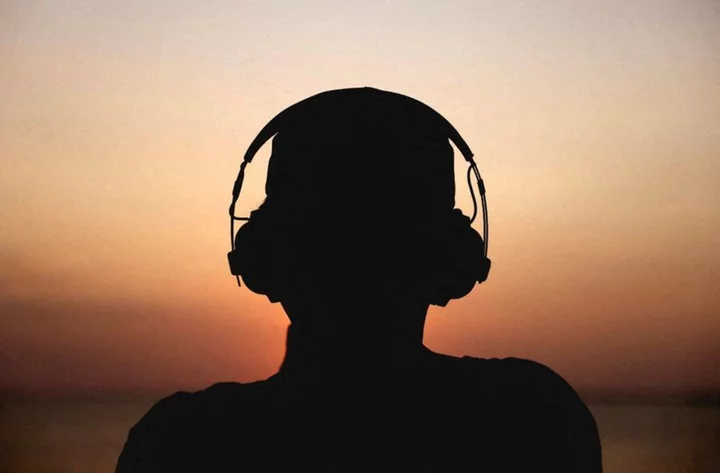
Music streaming was 2022's top moneymaker for songwriters, composers
Streaming became the largest source of income for composers and songwriters in 2022 and helped boost their collections
2023-10-26 14:27
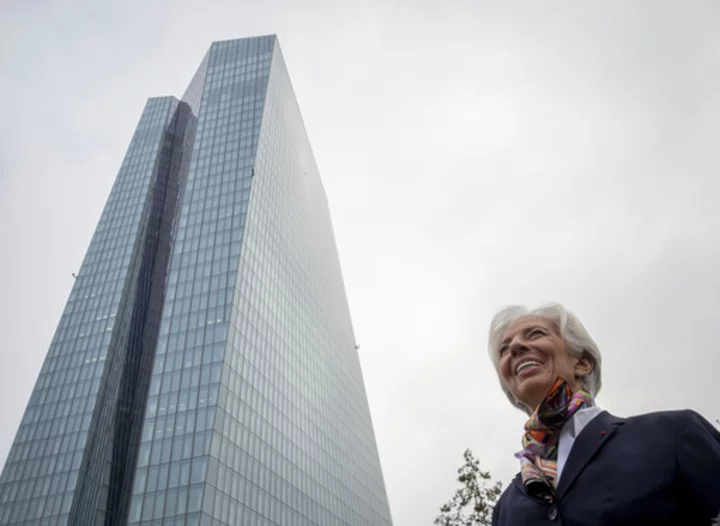
Europe's central bank is set to halt rate hikes as the Mideast war casts a shadow over the economy
The European Central Bank is likely taking a break from interest rate increases
2023-10-26 14:25

South China Sea: Biden says US will defend the Philippines if China attacks
Biden's statement comes days after collisions between Filipino and Chinese ships in the South China Sea.
2023-10-26 14:24
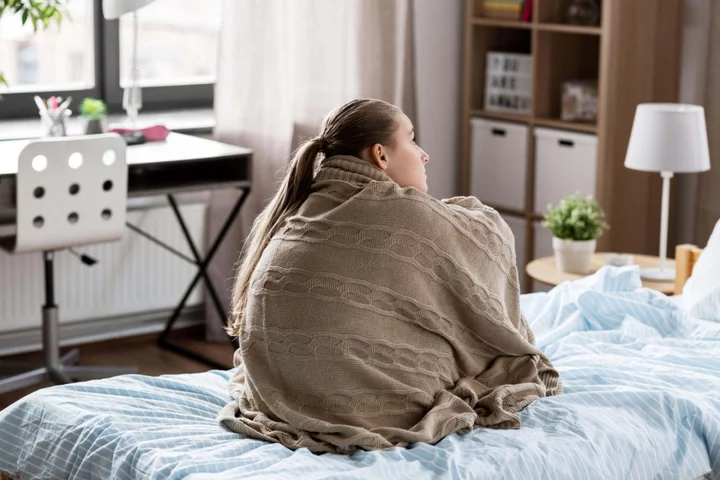
Hibernation mode: 5 small self-care adjustments to make before the clocks change
With the clocks going back on October 29, longer, darker nights are imminent – and many of us may be nervous about how this could impact our wellbeing. But, there are some little acts of self-care that could help. Here’s how to switch up your self-care routine as the clocks change… 1. Spend more time outdoorsIt may be getting colder, but time outside could be the best thing for you to protect your emotional welfare as the shorter days draw in. “When the clocks change, the internal body clock, our circadian rhythm, has to reset and it can become out of sync with our standard night-and-day cycle. It can take a few days for our body to adjust to the new sleep pattern, which can affect our hormones and temperature,” explains Dr Harriet Leyland, clinical advisor at myGP. To mitigate this, “spend more time outdoors”, she suggests. “Sunlight can alleviate drowsiness as it limits the release of melatonin, a hormone that induces tiredness and gets you ready for bed.” Jodie Relf, a Pilates instructor and registered dietitian from myOva, suggests making this part of your daytime routine. “[Getting outside] can be more challenging once the clocks have changed, it’s often dark for many of us both going to and returning from work. Therefore trying to get outside during the day, at lunchtime, perhaps, can be beneficial in the winter months,” says Relf. 2. Think about your body temperatureYou may be feeling the cold outside, but we don’t want to overheat indoors – especially at bedtime. “We sleep better in a cooler environment, with the ideal bedroom temperature reported to be a cool 16-17C,” says Dr Guy Meadows, co-founder and clinical lead at Sleep School. “For best sleep, switch off the central heating and swap your lightweight summer duvet for a higher tog winter one. Alternatively, use a combination of sheets, quilts and blankets, as this allows you to more easily regulate your temperature at night for better sleep.” 3. Prepare for good sleepIf you always struggle with sleep when the clocks change, give yourself a helping hand by being prepared. “Gradually adjust your bedtime in the few days leading up to the clocks changing – go to bed 15-30 minutes earlier each night for a few nights in the lead-up,” suggests Meadows, explaining this will help with the body-clock switch. 4. Eat a colourful plate While you may just want stodgy comfort food to warm the chillier evenings, eating well is one of the best ways to support your overall wellbeing – aiding energy, immunity, mood and sleep. “Eat a balanced diet with a colourful variety of plant foods including fruits, vegetables and whole grains, as well as lean protein,” explains Dana Moinian, a psychotherapist at The Soke. “Avoid heavy or high-sugar meals close to bedtime.” 5. See friends While social plans may have wound down compared with summer, hibernating and distancing yourself too much could be damaging to your wellbeing. “Spend time with friends and loved ones,” says Moinian. “Socialising naturally boosts your mood and reduces stress levels.” So get the diary out and plan in some fun outings and get-togethers! Read More 13 possible cancer symptoms you should get checked out Neglecting women’s health at work could cost UK economy £20.2bn a year – analysis Nearly three-quarters of mothers feel invisible, study suggests The best ways to work-out in 22 minutes – as study finds this is magic number for offsetting ‘negative impact of sitting’ What crops will we be growing in the future, as climate change alters the landscape? As Rebecca Adlington shares heart-breaking miscarriage news: How to support others experiencing baby loss
2023-10-26 14:24
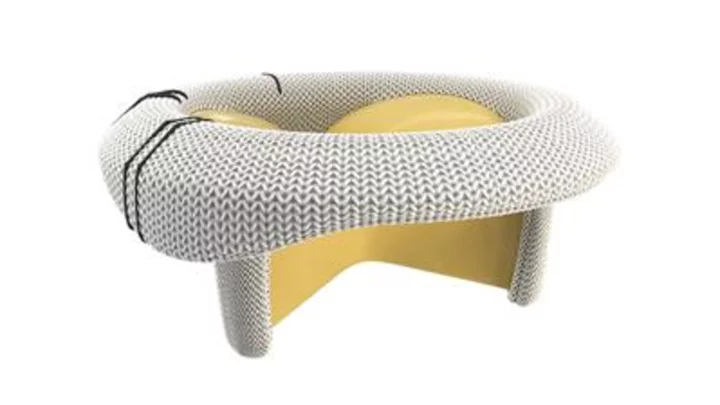
Edwards MITRIS RESILIA Valve Receives CE Mark for Mitral Replacement Surgeries
NYON, Switzerland--(BUSINESS WIRE)--Oct 26, 2023--
2023-10-26 14:23
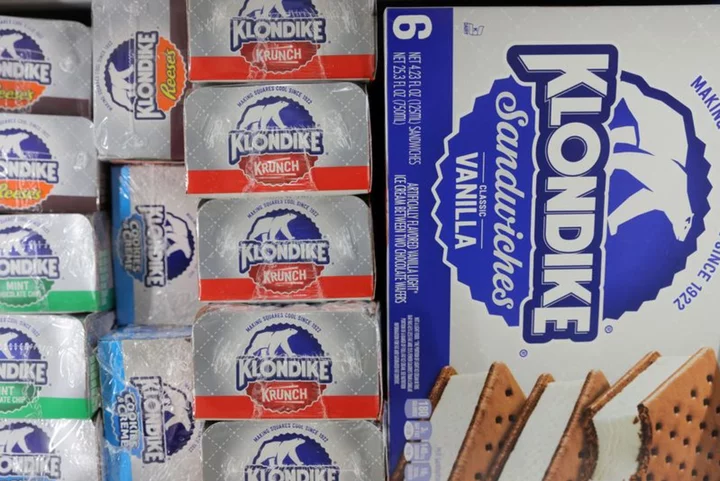
Unilever quarterly sales meet estimates as prices rise
LONDON (Reuters) -Unilever met market expectations for third quarter sales growth after raising prices at a slower rate but still
2023-10-26 14:22
